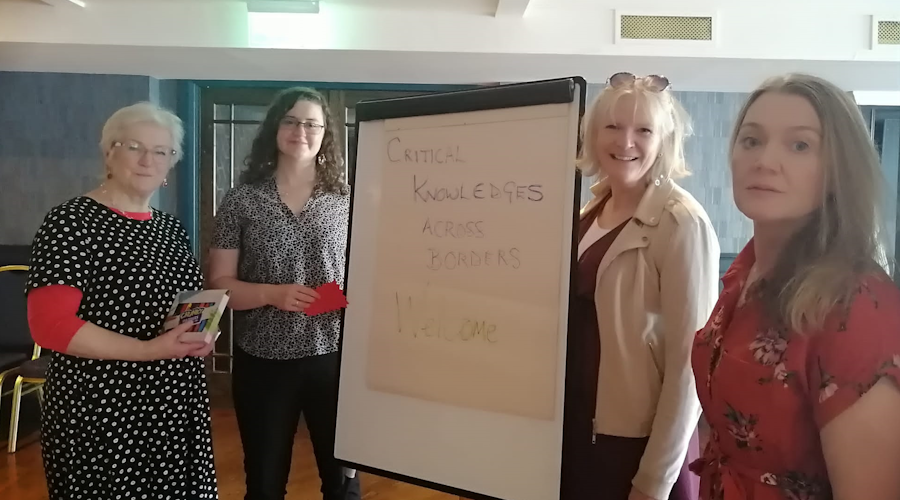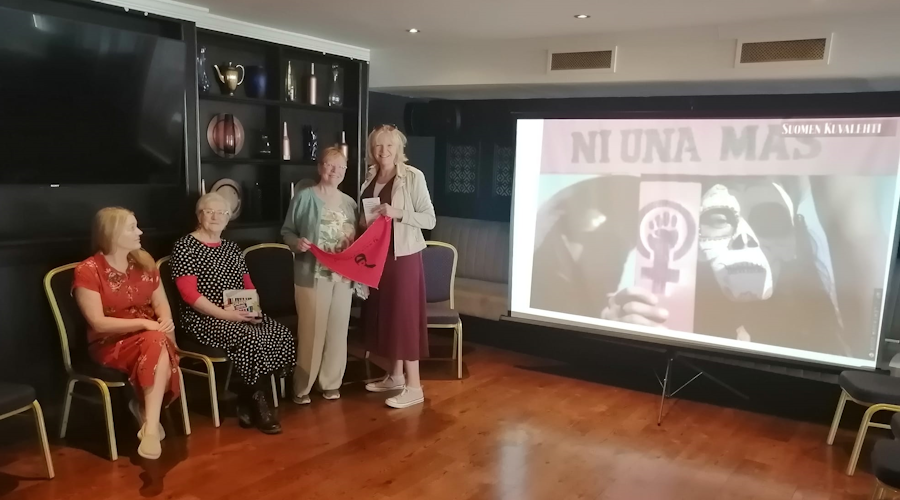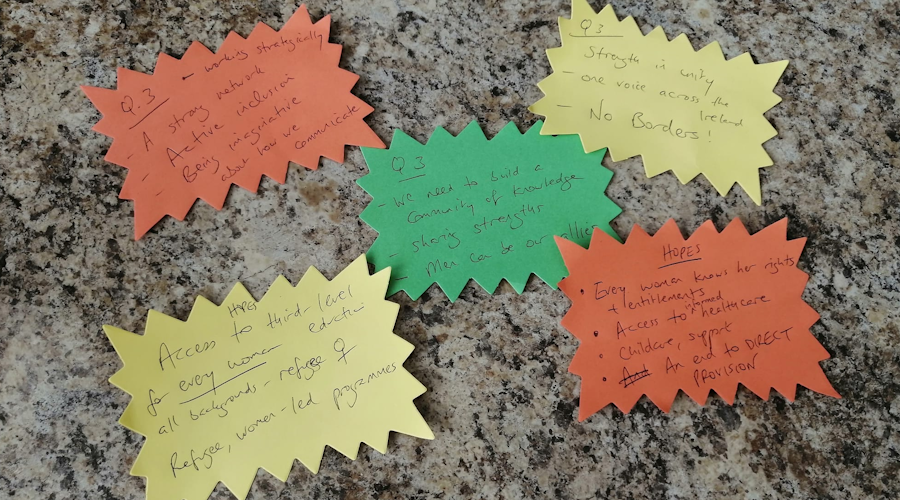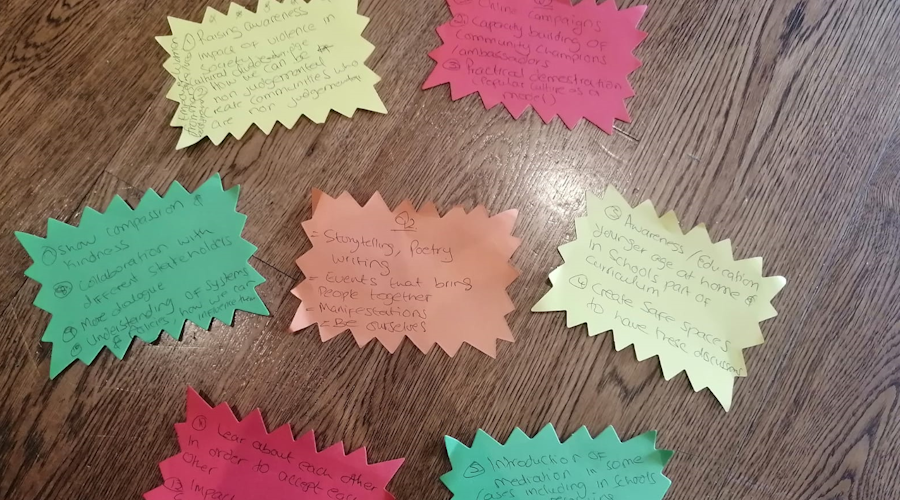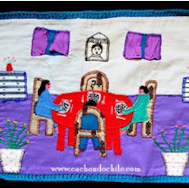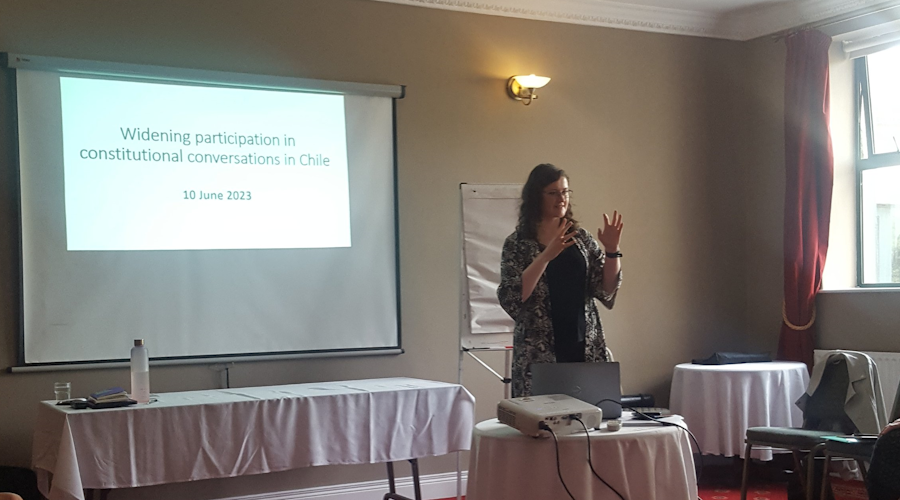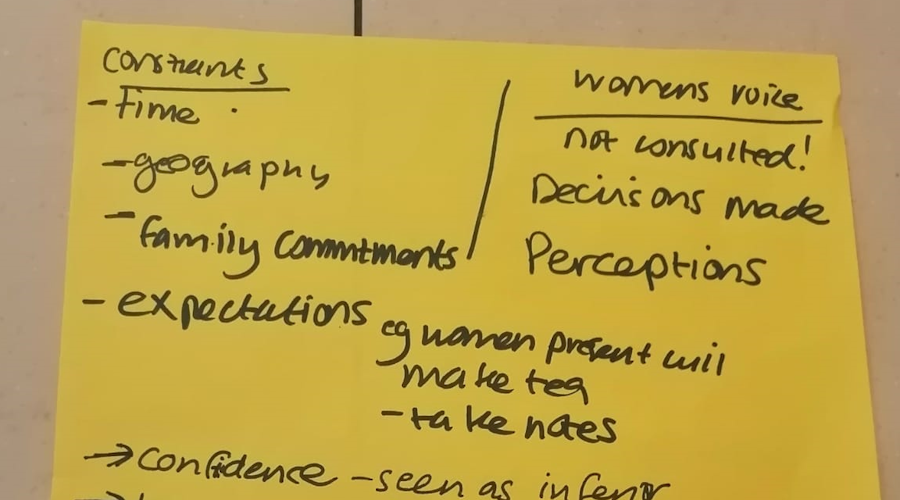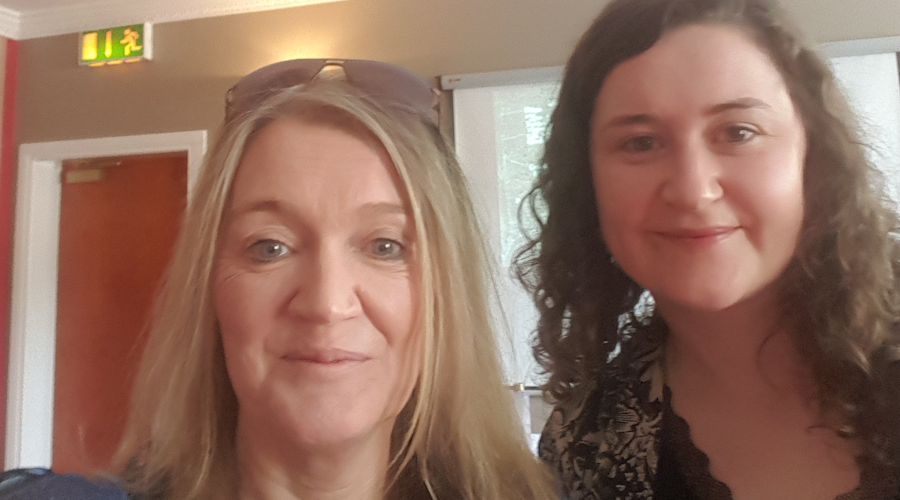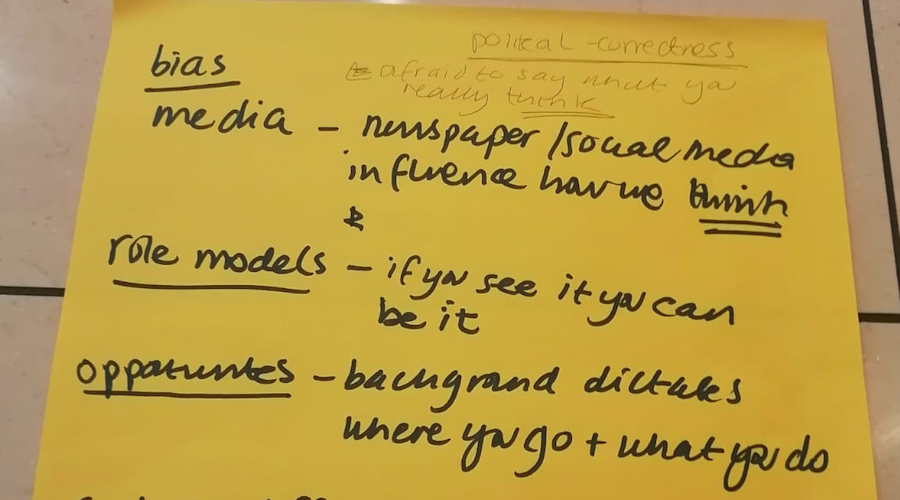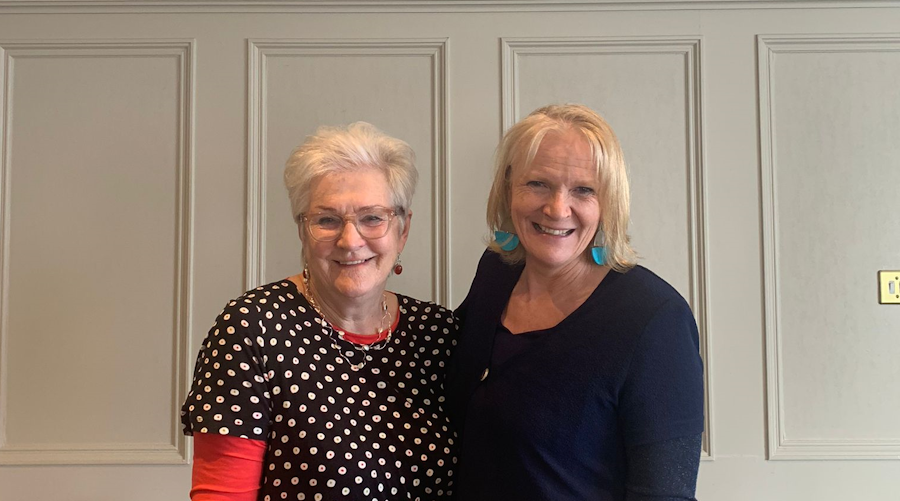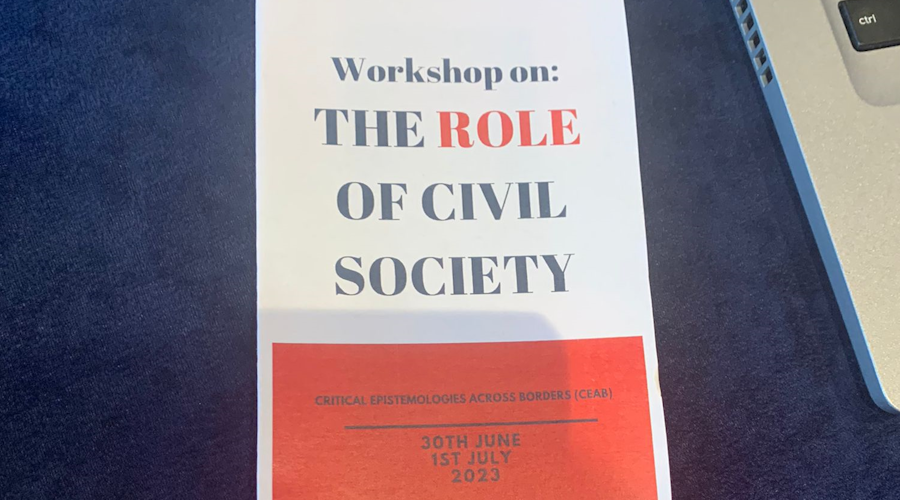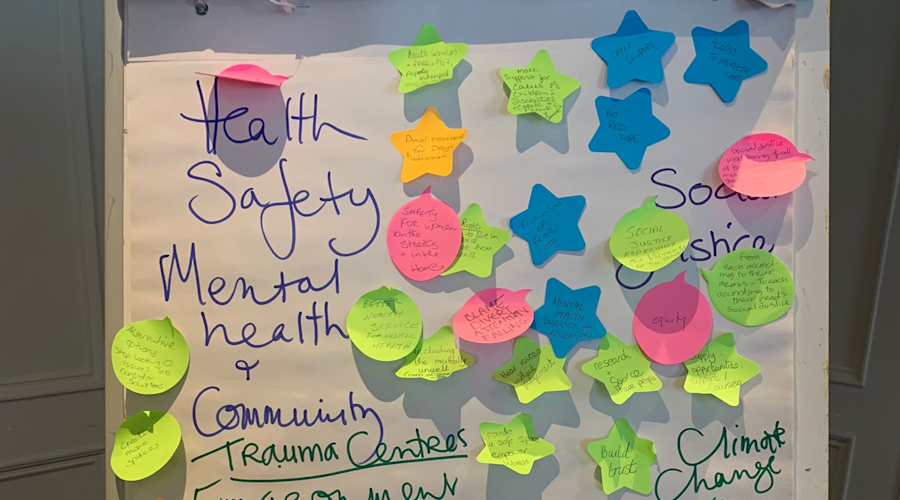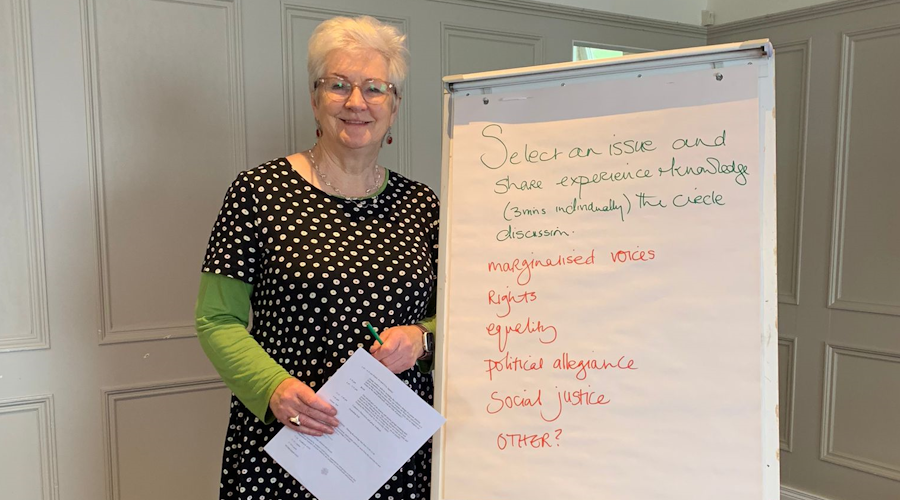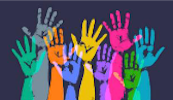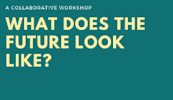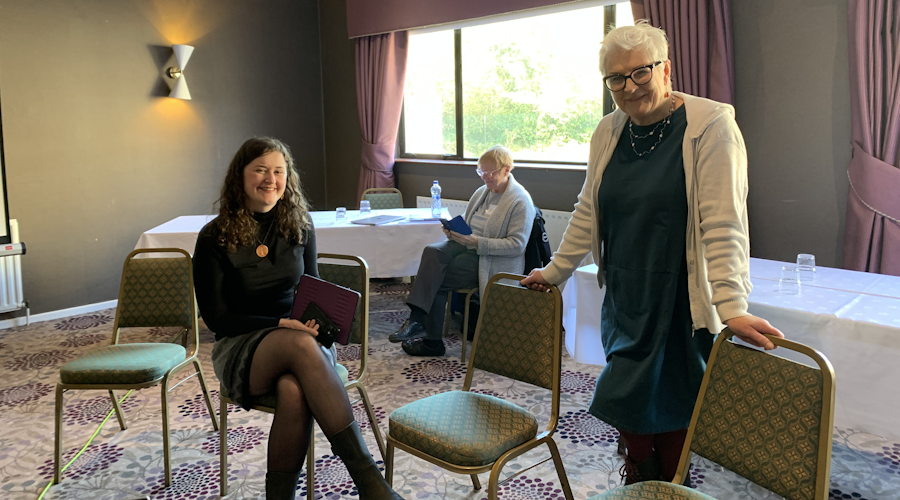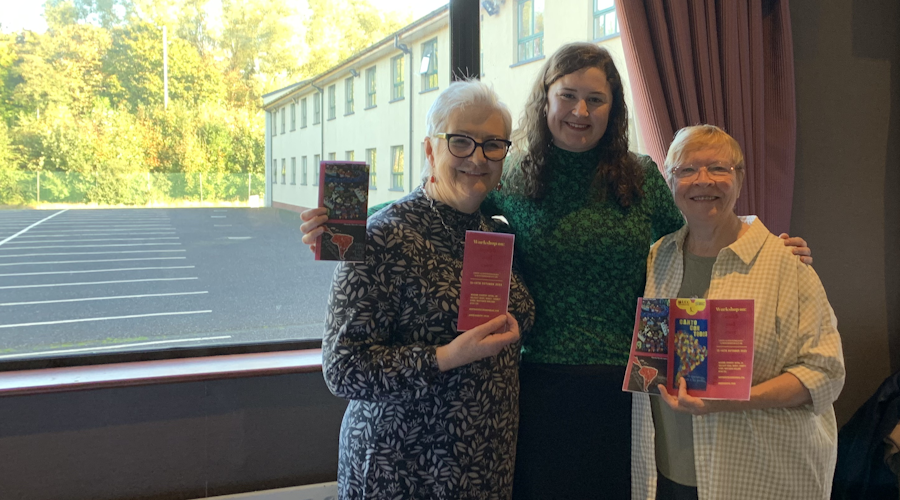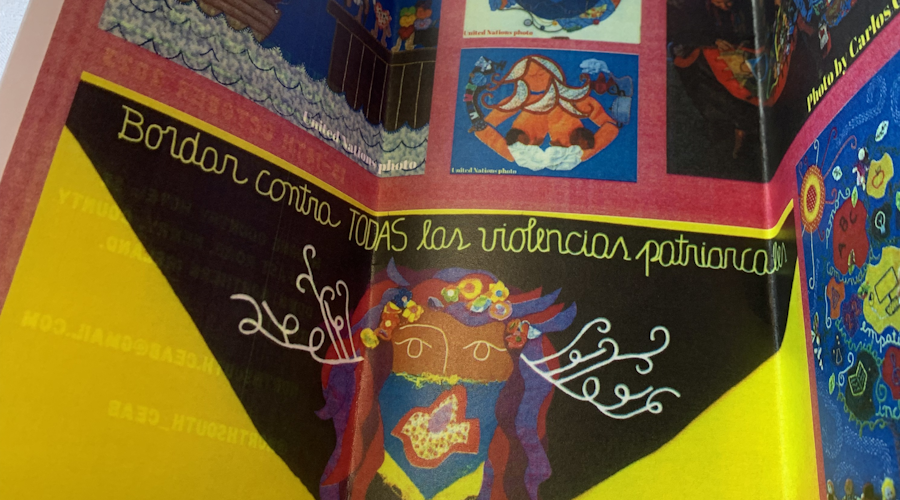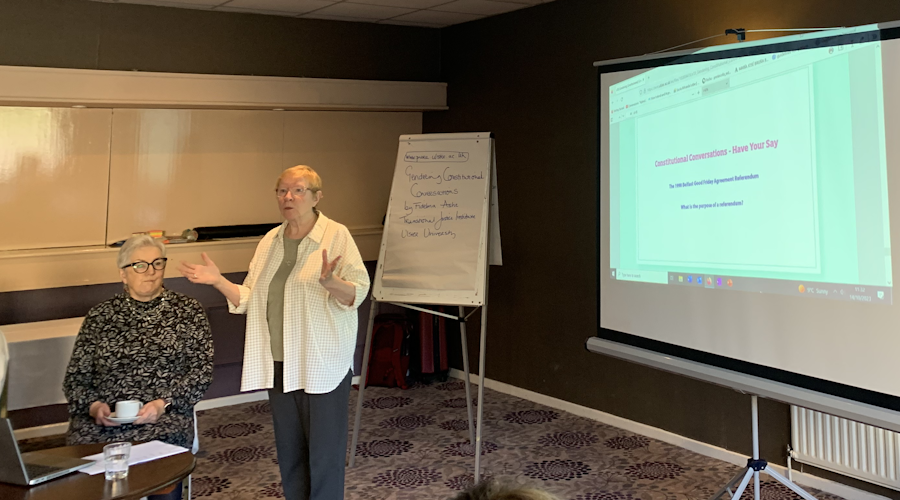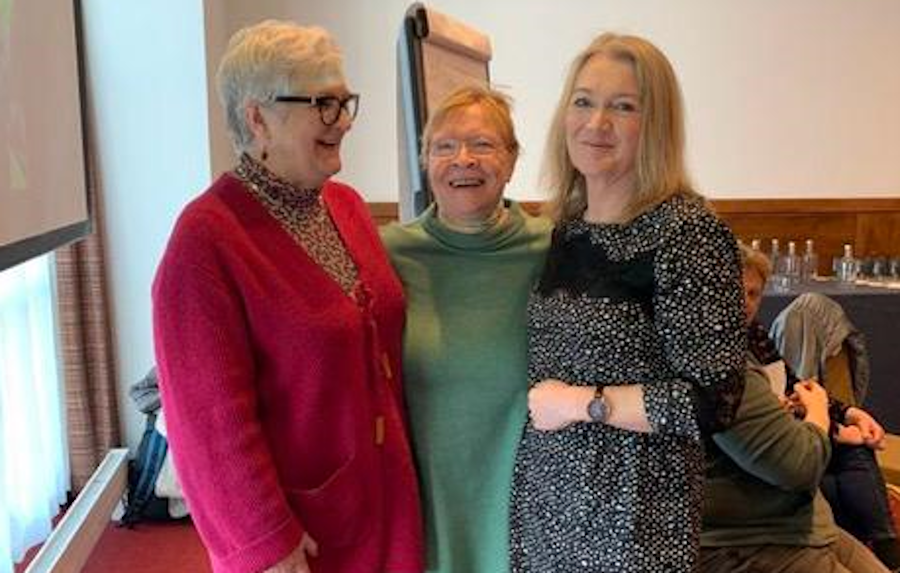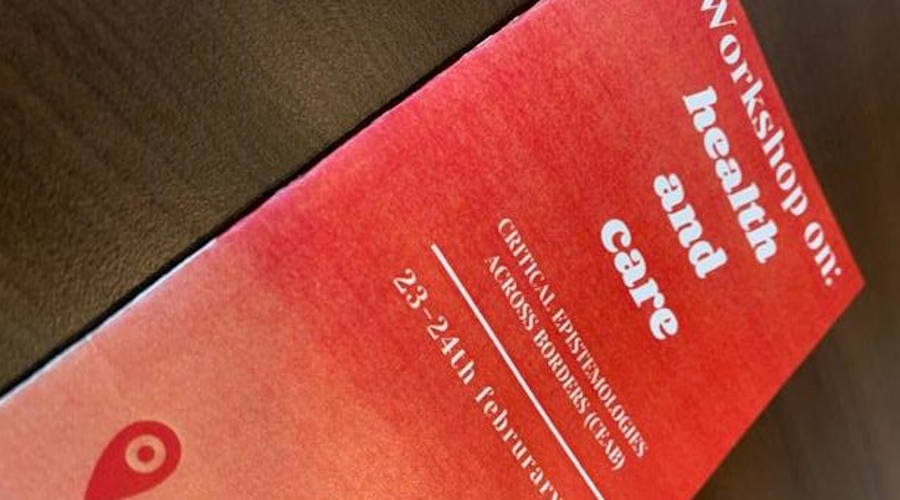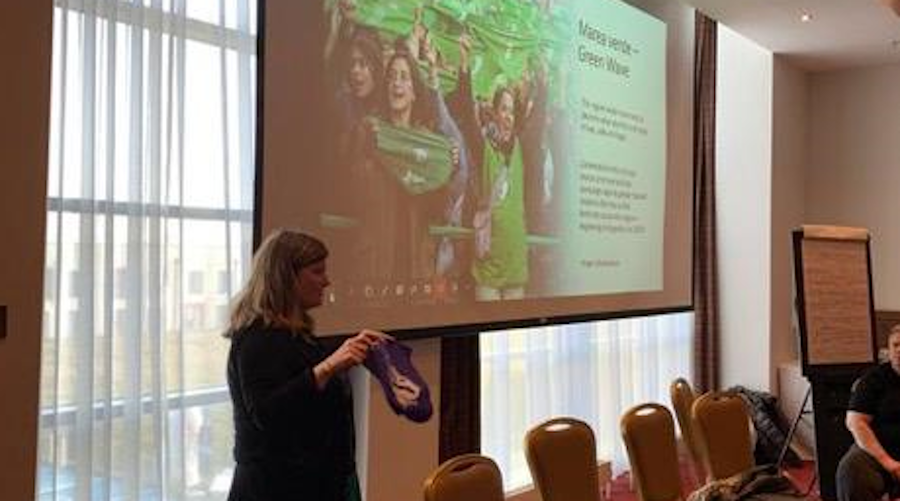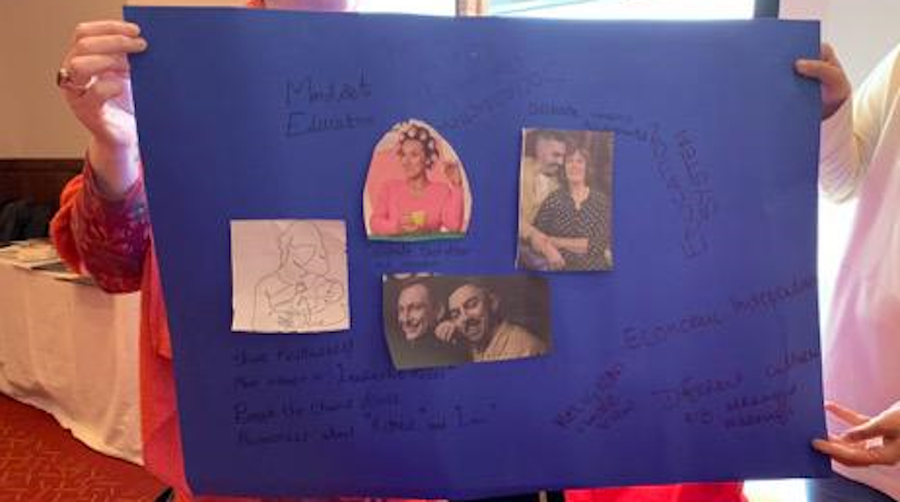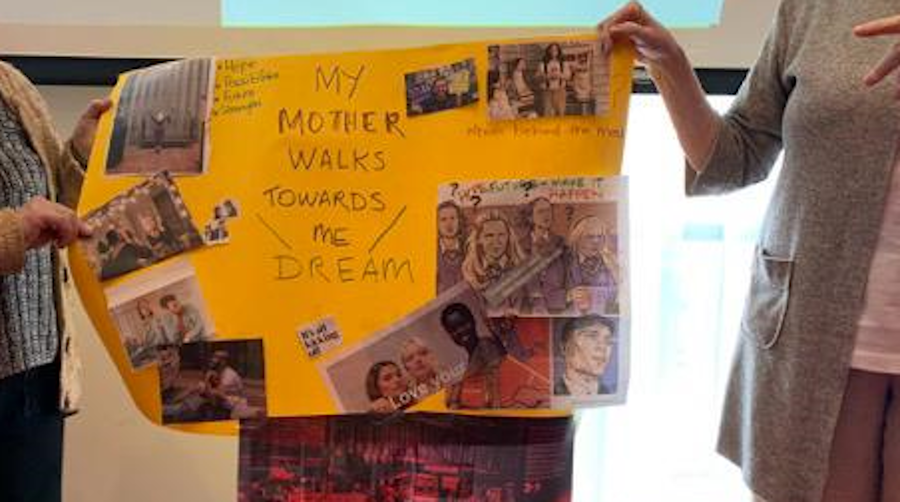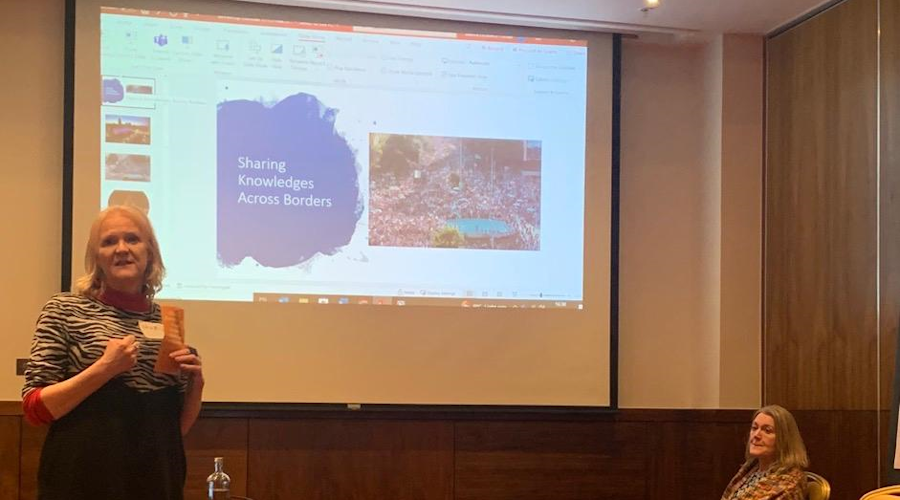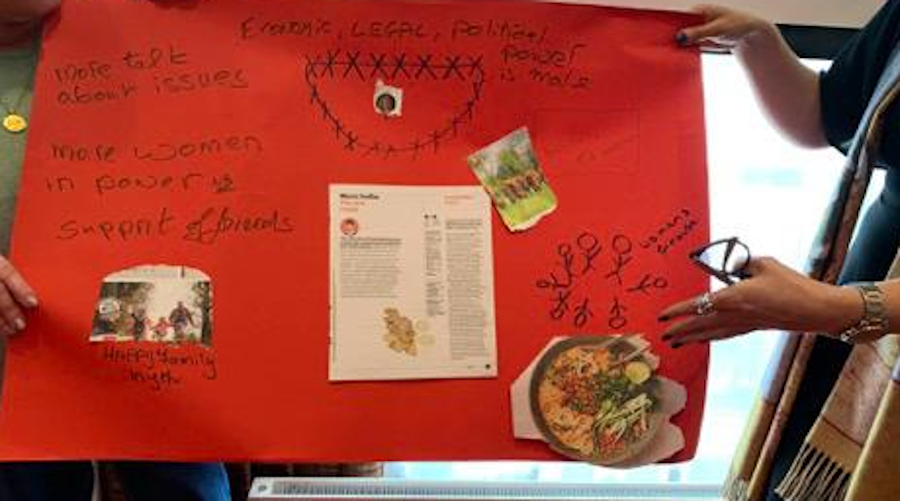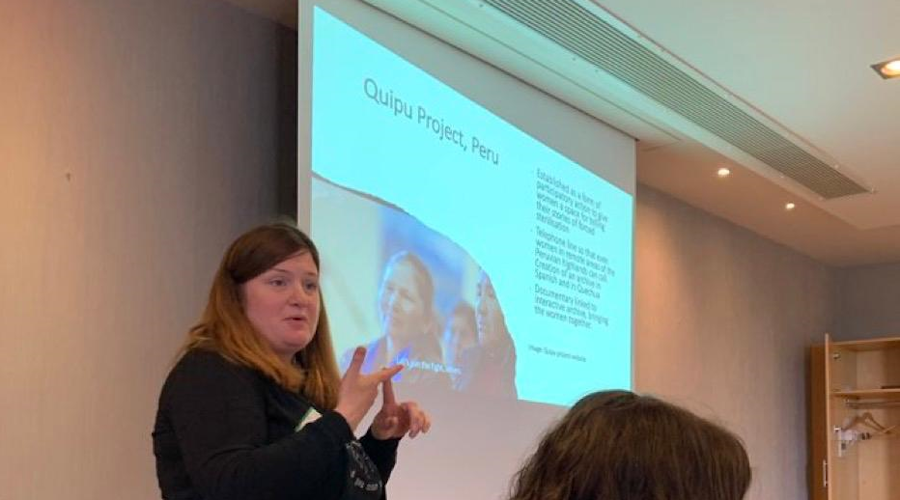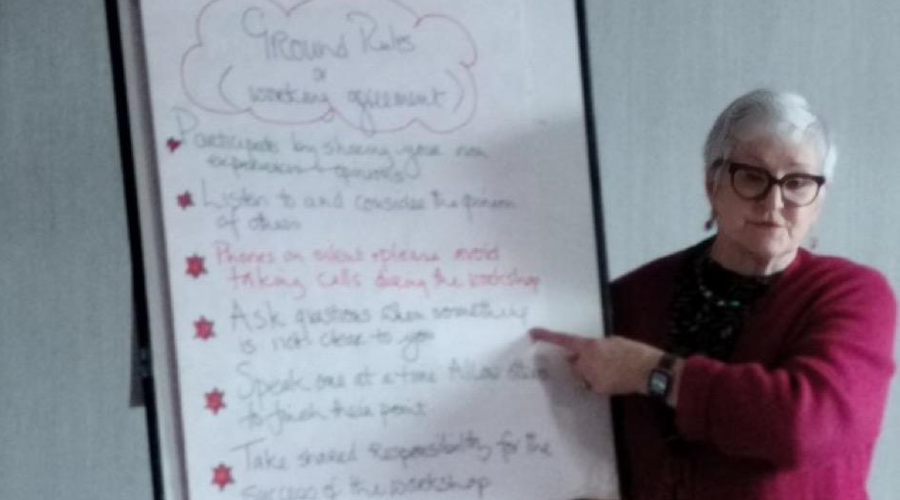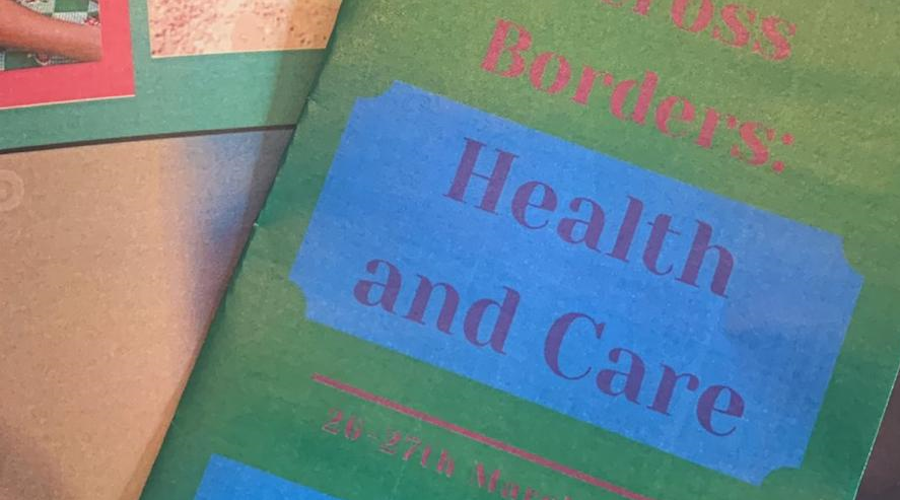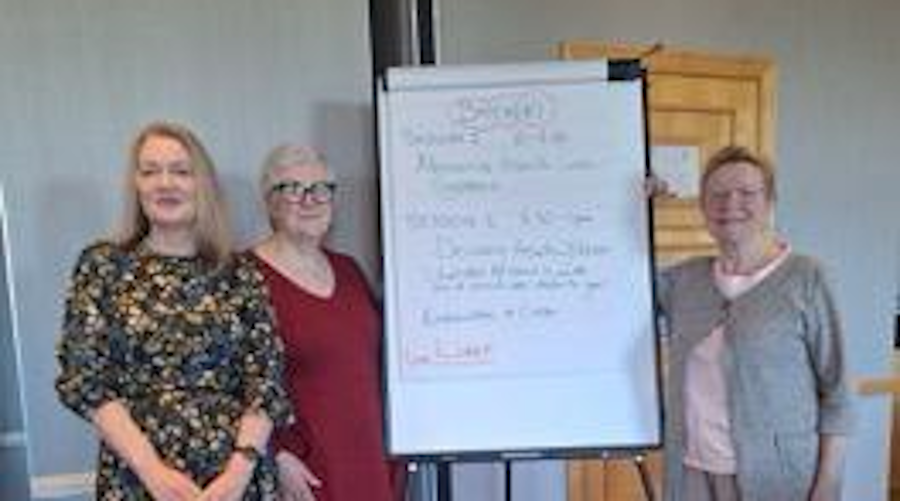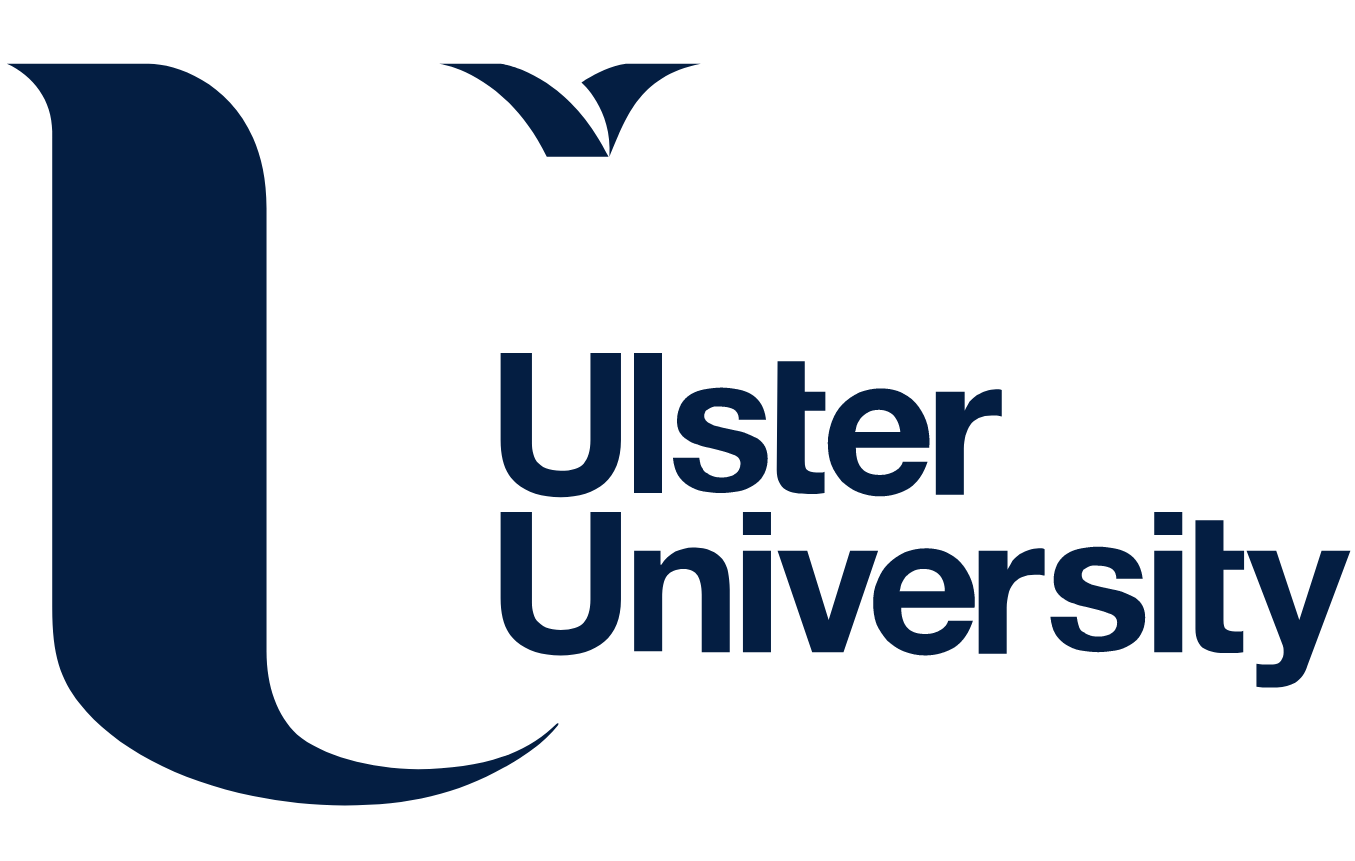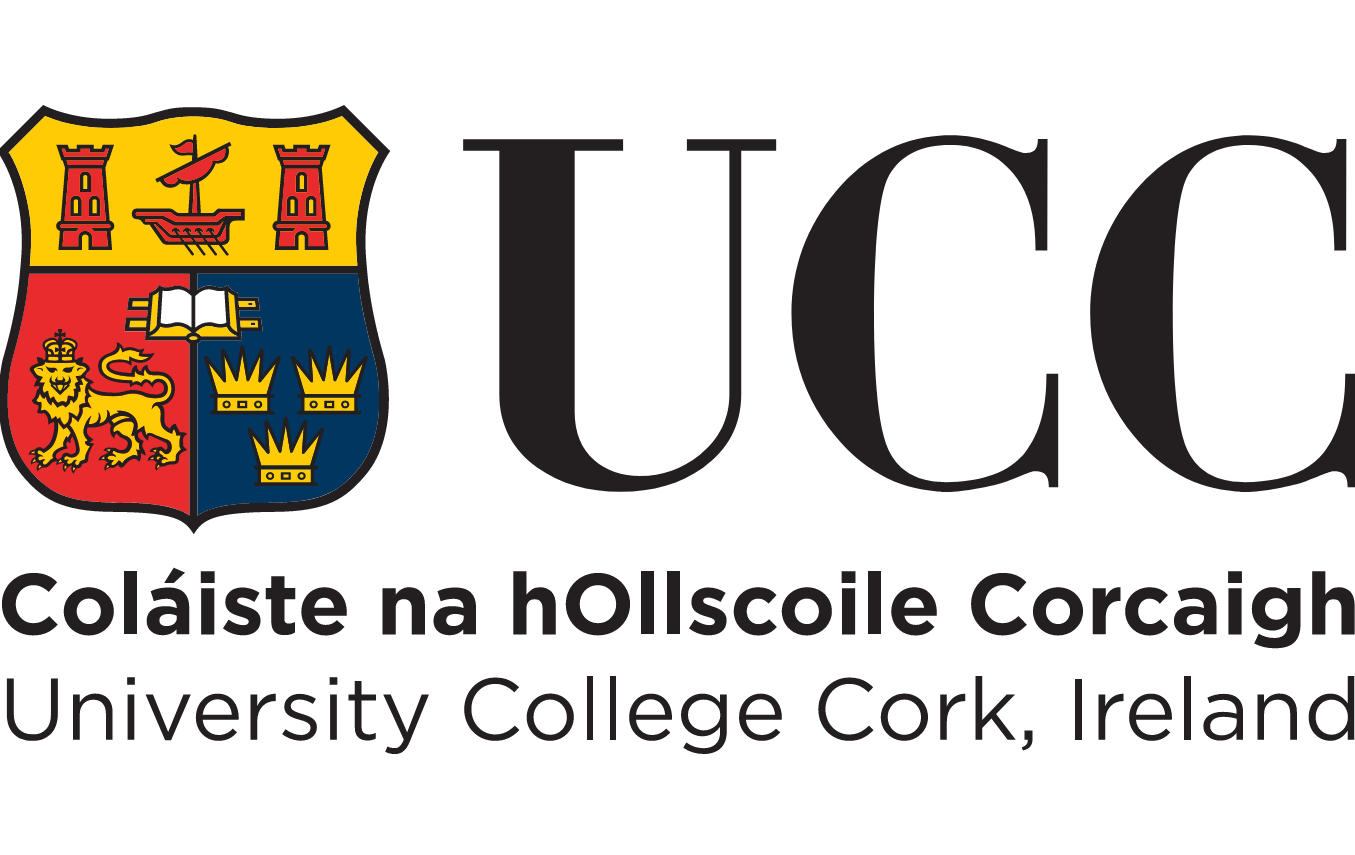The synergies of the project team are derived from the global perspectives and expertise in feminist and decolonial methods from Spanish and Latin American Studies at UCC merging with longstanding UU expertise in local/specific workshop formats co-created with participant NGO and grassroots women's organizations.
This series of workshops, led by Professor Nuala Finnegan from University College Cork (UCC) and Professor Fidelma Ashe from Ulster University (UU), is dedicated to fostering knowledge exchange between women from diverse backgrounds and envisioning a future where women’s voices are at the forefront of societal transformation. Centred on four key pillars—healthcare, security, civil society, and widening participation—these workshops explore critical topics that shape women’s lives and their capacity to drive change. The impact of this series is particularly focused on the Irish context, aiming to address cross-border challenges and opportunities for women’s leadership and participation across the island. Below, you can find further information on each of the four pillars that form the foundation of these discussions.
Healthcare
In this workshop, we explore the complexities of healthcare systems, recognising the crucial yet often overlooked roles that women play. We’ll employ a ‘dig where you stand’ approach, encouraging participants to share their experiences with healthcare systems both North and South, and learn about the disparities that impact health outcomes. An expert overview will highlight the strengths and weaknesses of each system, as we consider the hopes and priorities for healthcare policy, inspired by Rebecca Milner’s words: “If you check the health of a woman, you check the health of a society.” We also learn from cases of creative healthcare in other parts of the world, including Peru, Bolivia and Mexico. The session will delve into the creative dimensions of caring, examining how art and creativity can inspire conversations and contribute to a healthier future, drawing on Emily Dickinson’s poetic vision of hope.
Security
Security is fundamental to women’s ability to engage fully in society. This workshop addresses the varied aspects of women’s security, from the home to the public sphere. We’ll explore how international laws support women’s protection and reflect on Nelson Mandela’s view of safety as a shared responsibility. The session aims to identify policies that could enhance women’s security and consider the implications of converging approaches to this issue across the island of Ireland. In our creative sessions, we use photographs as starting points for discussions about how security and associated themes of fear and wellbeing impact all of our lives. We’ll also engage in discussions on peacebuilding and constitutional change, underlining the importance of women’s involvement in these critical debates.
The Role of Civil Society
Civil society, driven by values rather than profit, plays a vital role in safeguarding rights and maintaining democratic legitimacy. This workshop invites participants to reflect on their experiences with civil society support and activism. We’ll examine women’s activism during the Scottish Independence referendum and consider President Biden’s claim that social change begins with civil society’s demands. Taking inspiration from Cuba and other parts of the Caribbean, the creative power of poster art will also be explored as we envision transformative ideas for our communities. Participants will have the opportunity to design posters that reflect their aspirations for a more inclusive and sustainable future, drawing parallels with artistic interventions at the US-Mexico border.
Widening Participation
This workshop focuses on increasing women’s inclusion in political decision-making through crafting conversations while creating arpilleras, reflecting on political participation and influential leaders. We’ll discuss the gender dynamics within citizens’assemblies and the role of women in constitutional debates, echoing Hillary Clinton’s sentiment on the ripple effect of women in politics. The session will also consider the
rewriting of the Chilean constitution and the increased representation it achieved for women, particularly women of colour, in the decision-making process.
Through these workshops, our goal is to build a cross-border community of knowledge and support, empowering women to be agents of change within their societies. Join us in this collective effort to share, learn, and imagine a future where every woman’s voice is heard, and her potential is fully realised.
Critical Knowledges Across Borders
Click on the images below to view detail on Widening Participation and Widening Participation Part II
Widening Participation
Sharing our Knowledge
The effects of widening participation in political decision-making has been viewed as both positive in terms of its enrichment of democracy and negative because, it is claimed, too many active citizens do not have the capacities required to make good and non-biased decisions. Advocates for gender equality argue women’s participation in public debate and decision-making is essential if imbalances in gender power are to be challenged. This workshop implements a ‘dig where you stand’ approach to enable women to consider participation in debates about political change.
Expanding our knowledge
Citizen’s assemblies have become a popular tool for facilitating the participation of diverse voices and identities in constitutional change. This session looks at the gender dynamics within citizen’s assemblies – do men speak more than women? It also examines the gender outcomes of citizen’s assemblies on constitutional issues and futures. Moreover, it examines participation in the public sphere to promote gender equality.
Envisaging our futures
Hilary Clinton noted: ‘When women participate in politics, the effects ripple out across society... Women are the world's most underused resource’. How can we deepen participatory opportunities for women and all the social groups they belong to in current constitutional debates? What barriers will different groups face? What needs to be done? What are the opportunities for developing cross-border spaces for women to engage with constitutional issues.
Widening Participation Part II
Sharing our Knowledge
In this workshop we will turn to women’s inclusion and agency in political decision-making. The workshop will involve participants coming together in a crafting conversation, as we work together on an arpillera, a brightly coloured patchwork quilt that is used in Chile to tell stories of political conflict and struggle. This may lead us to think about our own political participation and perhaps about women leaders who inspire us. This workshop implements a ‘dig where you stand’ approach to consi
Expanding our knowledge
After engaging in a crafting conversation, we look more specifically at the Chile arpillera and recent debate over constitutional change. The rewriting of the Chilean constitution, a throwback from the 1973- 1990 dictatorship, has brought women and, in particular, women of colour into the decision-making process in the quest to increase representation of those who may lack access to power. Our conversation will then return to the context from which participants are coming to consider lessons to
Envisaging our Futures
The crafting conversation will use the arpillera as inspiration for wider debate about what women’s political participation could or should look like in the island of Ireland. ‘If they don’t give you a seat at the table, bring in a folding chair' Shirley Chisholm
Critical Knowledges Across Borders
Click on the images below to view detail on Widening Participation and Widening Participation Part II
Widening Participation
Sharing our Knowledge
The effects of widening participation in political decision-making has been viewed as both positive in terms of its enrichment of democracy and negative because, it is claimed, too many active citizens do not have the capacities required to make good and non-biased decisions. Advocates for gender equality argue women’s participation in public debate and decision-making is essential if imbalances in gender power are to be challenged. This workshop implements a ‘dig where you stand’ approach to enable women to consider participation in debates about political change.
Expanding our knowledge
Citizen’s assemblies have become a popular tool for facilitating the participation of diverse voices and identities in constitutional change. This session looks at the gender dynamics within citizen’s assemblies – do men speak more than women? It also examines the gender outcomes of citizen’s assemblies on constitutional issues and futures. Moreover, it examines participation in the public sphere to promote gender equality.
Envisaging our futures
Hilary Clinton noted: ‘When women participate in politics, the effects ripple out across society... Women are the world's most underused resource’. How can we deepen participatory opportunities for women and all the social groups they belong to in current constitutional debates? What barriers will different groups face? What needs to be done? What are the opportunities for developing cross- border spaces for women to engage with constitutional issues.
Widening Participation Part II
Sharing our Knowledge
In this workshop we will turn to women’s inclusion and agency in political decision-making. The workshop will involve participants coming together in a crafting conversation, as we work together on an arpillera, a brightly coloured patchwork quilt that is used in Chile to tell stories of political conflict and struggle. This may lead us to think about our own political participation and perhaps about women leaders who inspire us. This workshop implements a ‘dig where you stand’ approach to consi
Expanding our knowledge
After engaging in a crafting conversation, we look more specifically at the Chile arpillera and recent debate over constitutional change. The rewriting of the Chilean constitution, a throwback from the 1973-1990 dictatorship, has brought women and, in particular, women of colour into the decision-making process in the quest to increase representation of those who may lack access to power. Our conversation will then return to the context from which participants are coming to consider lessons to b
Envisaging our Futures
The crafting conversation will use the arpillera as inspiration for wider debate about what women’s political participation could or should look like in the island of Ireland.
‘If they don’t give you a seat at the table, bring in a folding chair’
Shirley Chisholm
Critical Knowledges Across Borders

